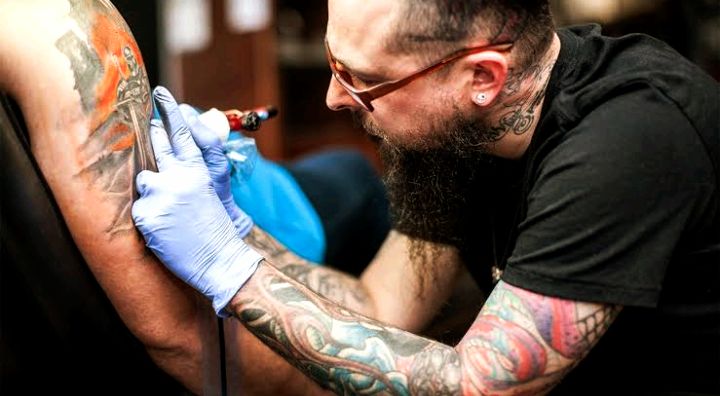Adeleke Dorcas Temitope

Oncologists and Haematologists has cautioned Nigerians about the increased risk of blood cancers, particularly lymphoma (cancer of the blood) through the new trend of getting tattoos.
Experts has confirmed that the chemicals in tattoo ink is made of polyaromatic hydrocarbons known for their carcinogenic properties which can trigger immune reaction resulting to blood cancer.
The ink used in tattoos can migrate into the lymphatic system, particularly when tattoos are near lymph nodes in areas like the neck, armpits, and groin. This can cause genetic damage and cellular changes, contributing to lymphoma.
Dr. Charles Okwonna, a consultant clinical oncologist at St. Luke’s Cancer Centre, UK, highlights that cheaper inks with more impurities pose a higher risk.
There is also high risk of developing blood cancers from tattoos varies depending on the quality of the ink and the skill of the tattoo artist.
The more polished the ink, the fewer impurities it contains, reducing the risk. Additionally, tattoos near lymph nodes are more likely to elicit harmful immune reactions.
Physicians are urging stricter regulations within the tattoo industry to ensure safe ink compositions and professional practices.
Dr. Okwonna emphasizes the need for mandatory health checks after tattooing to detect potential health problems early.
Dr. Olaniyi Owoeye, a consultant hematologist at C Lab Nigeria and lecturer at Olabisi Onabanjo University, confirms that tattoo inks can cause genetic damage leading to blood cancers.
He notes that individual sensitivity to these immune reactions varies, influenced by genetic factors and lifestyle behaviors.
Also a study published in Clinical Medicine found that having a tattoo is associated with a 21% higher risk of lymphoma.
The study, involving 11,905 participants, suggests that tattoos may be an actionable risk factor for infectious lymphoma from a public health perspective.
Moreover, While tattoos are popular, especially among younger populations, the associated health risks require increased awareness.
Regulatory bodies should enforce standards to ensure the safety of tattoo inks and procedures, and individuals should be informed about potential health implications before getting tattoos.
